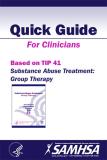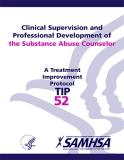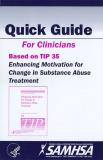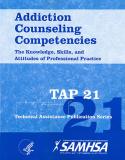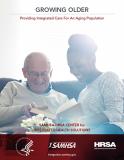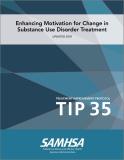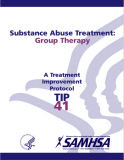
This guide helps counselors improve their skills in leading group therapy sessions for substance use treatment. The guide discusses types of group therapy, confidentiality, client placement, group development, stages of treatment, how-to tips, training, and supervision.
Units per Product
Download
TIP 41
File Type: PDF
File Size: 1.71 MB
Editor's Note
File Type: PDF
File Size: 124 KB


